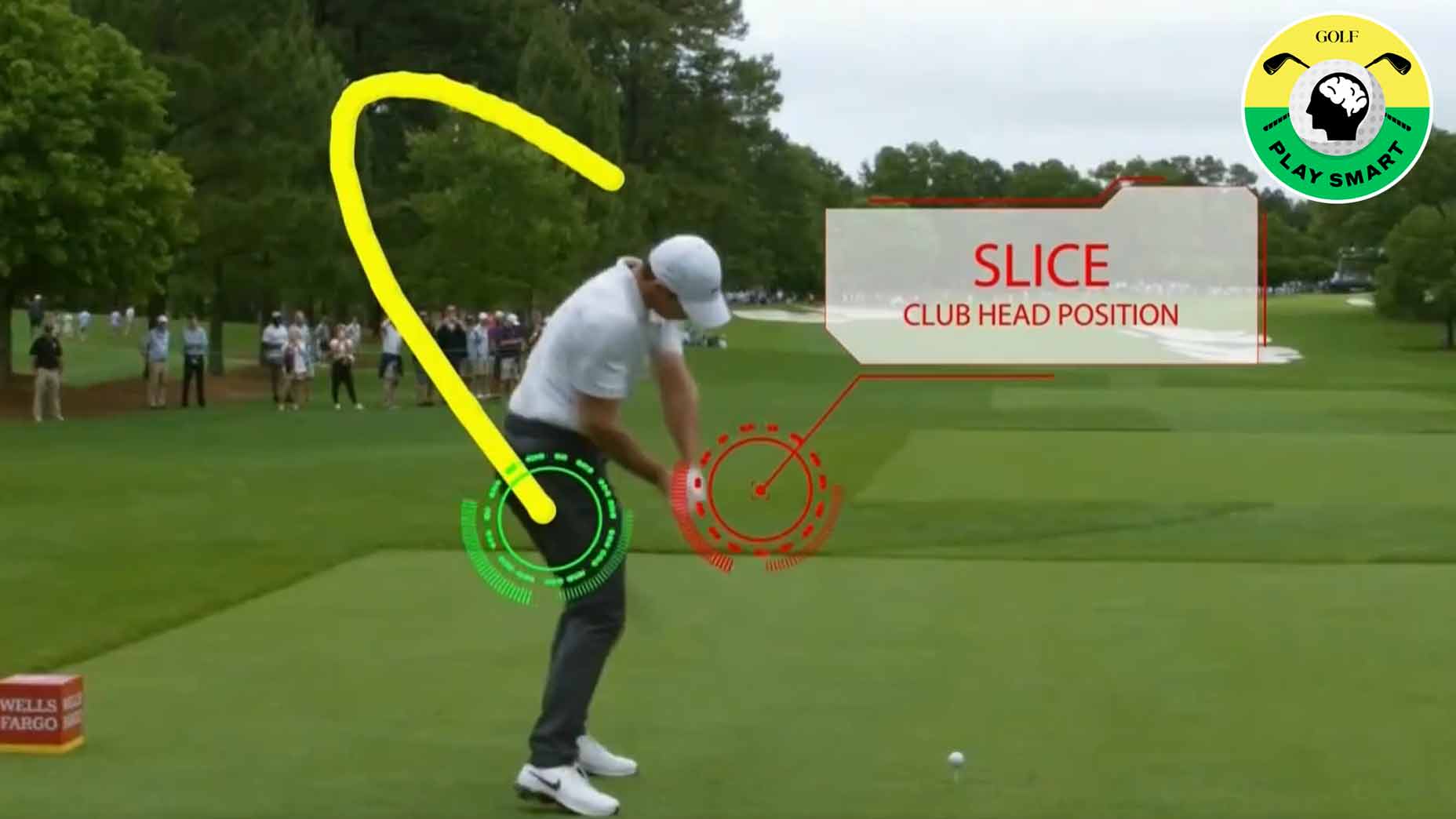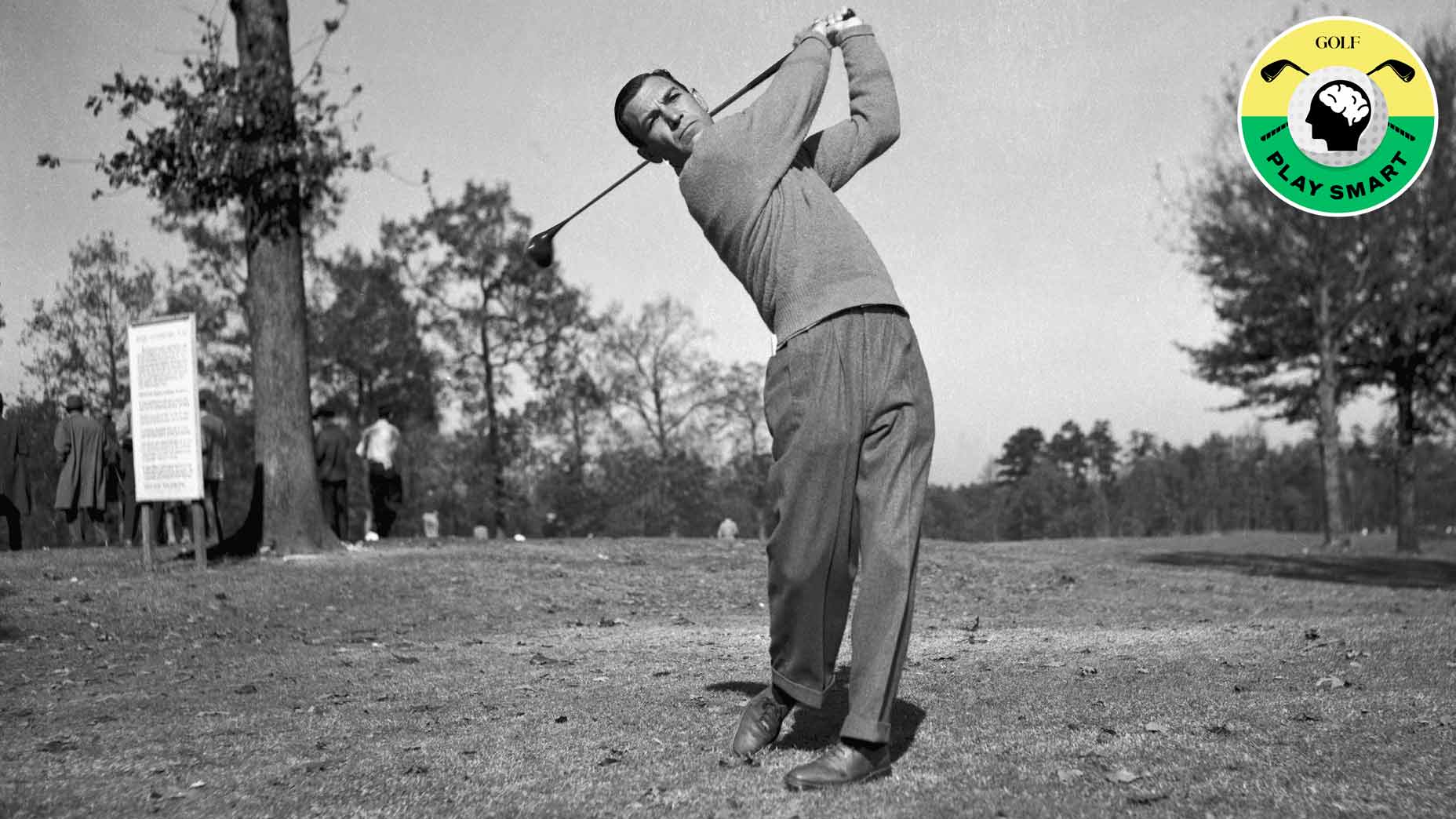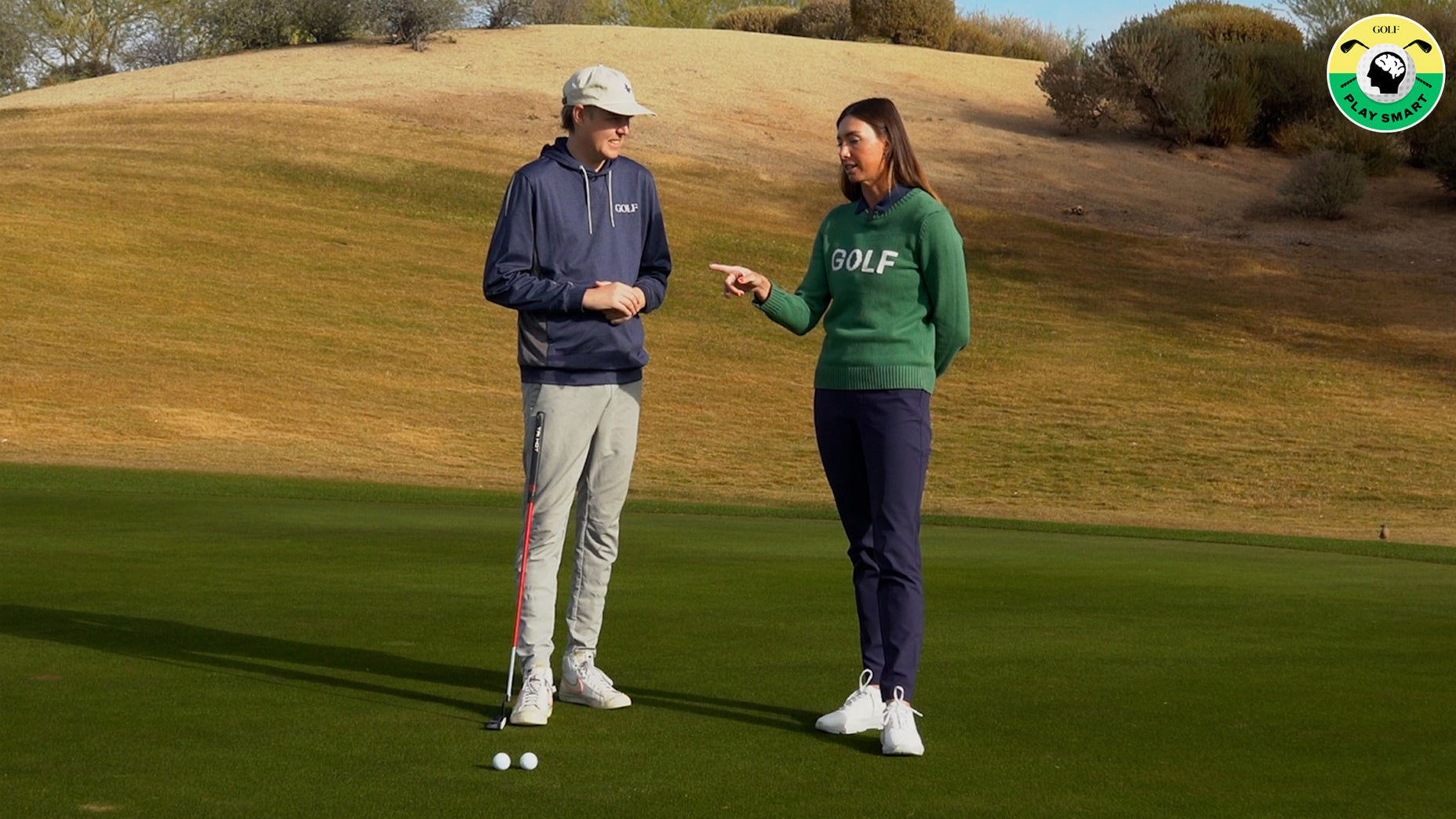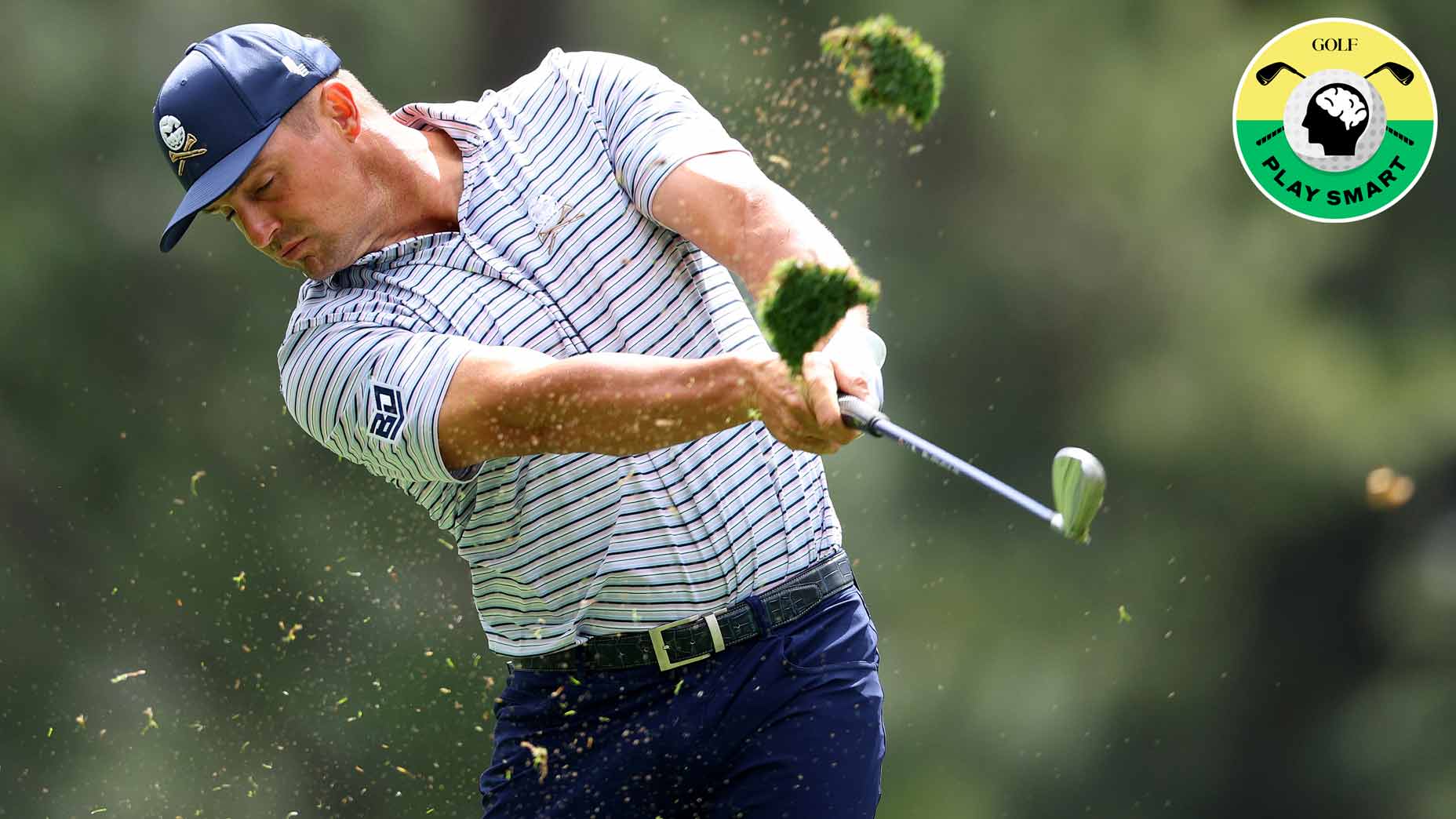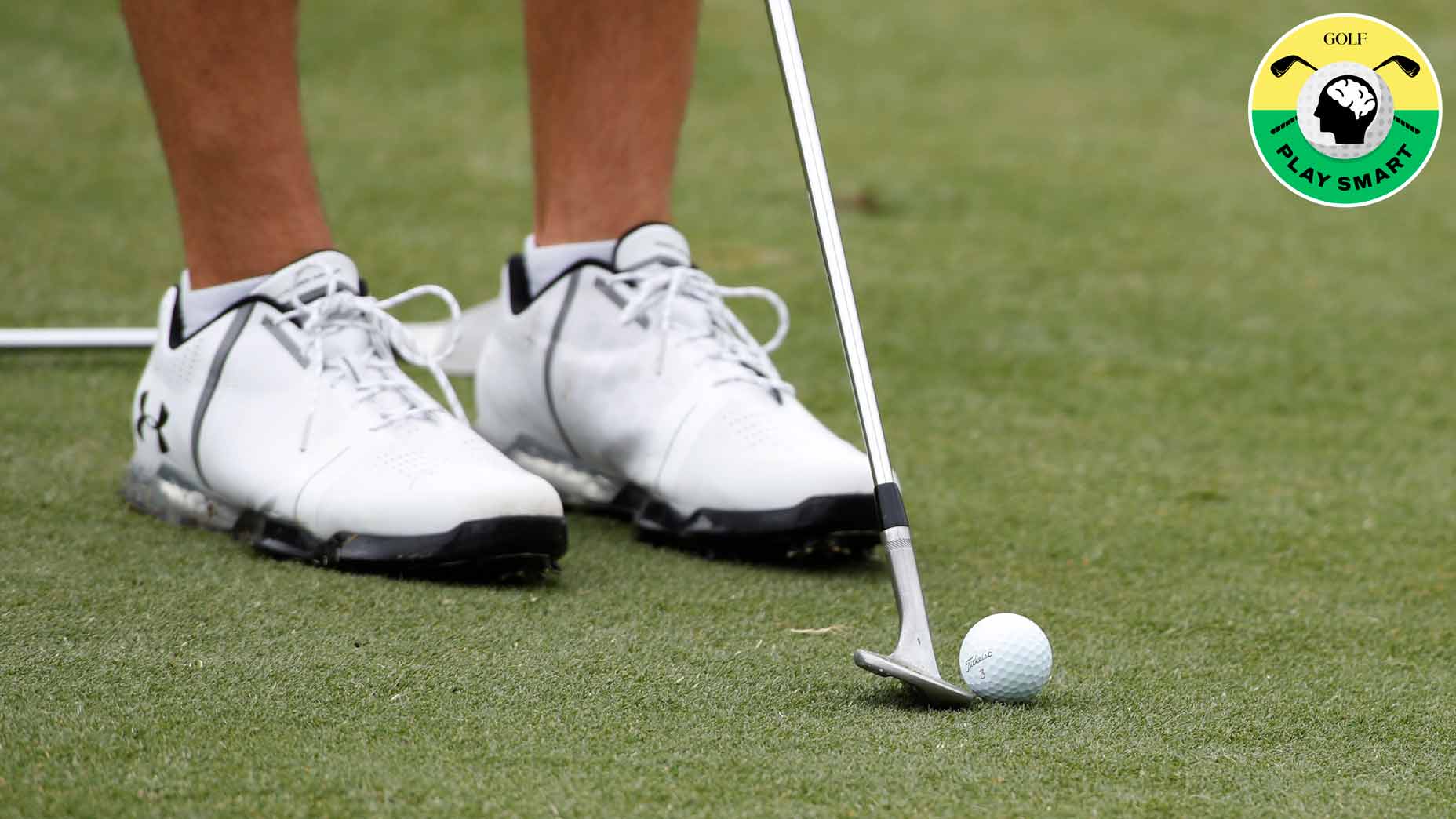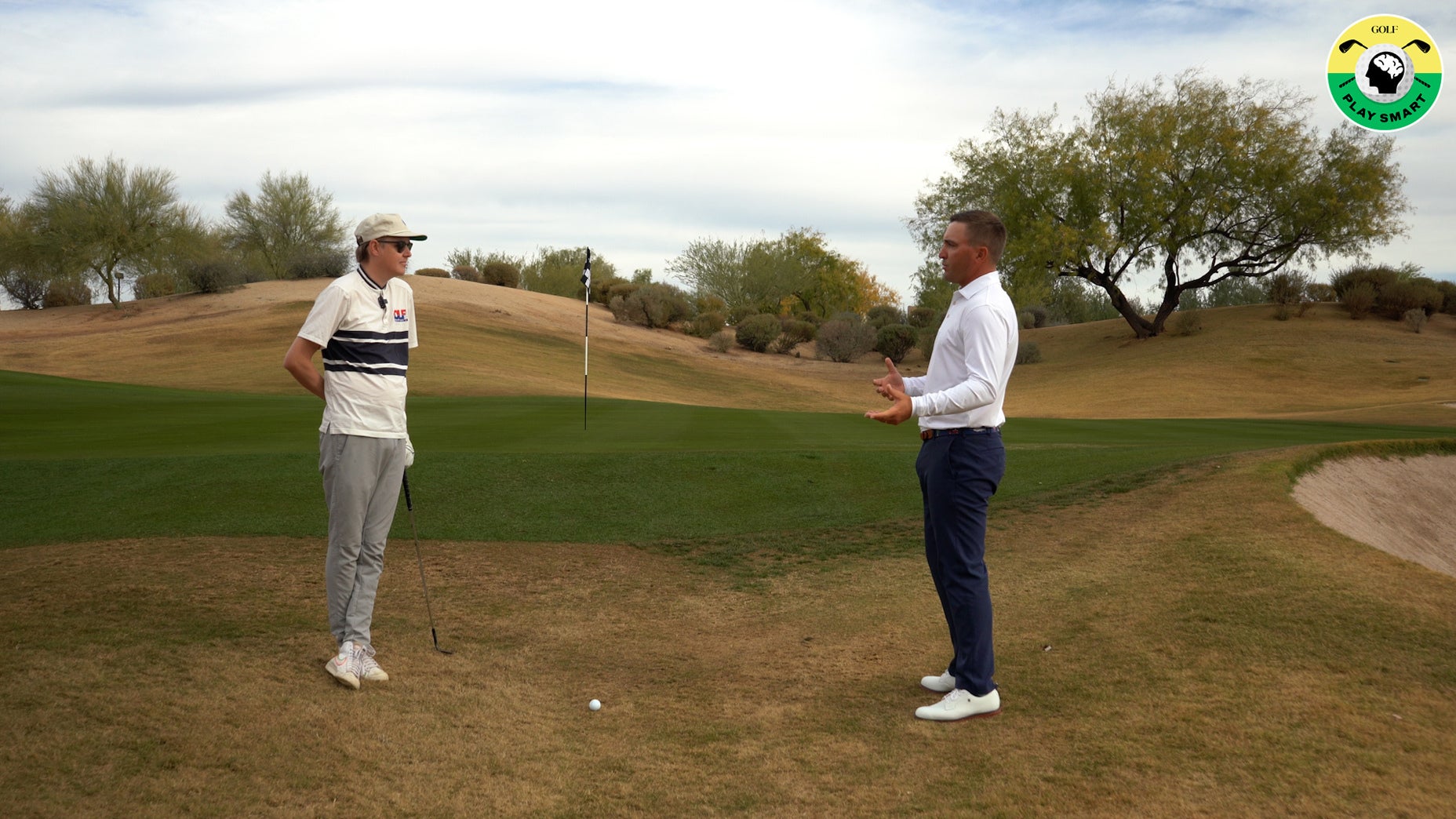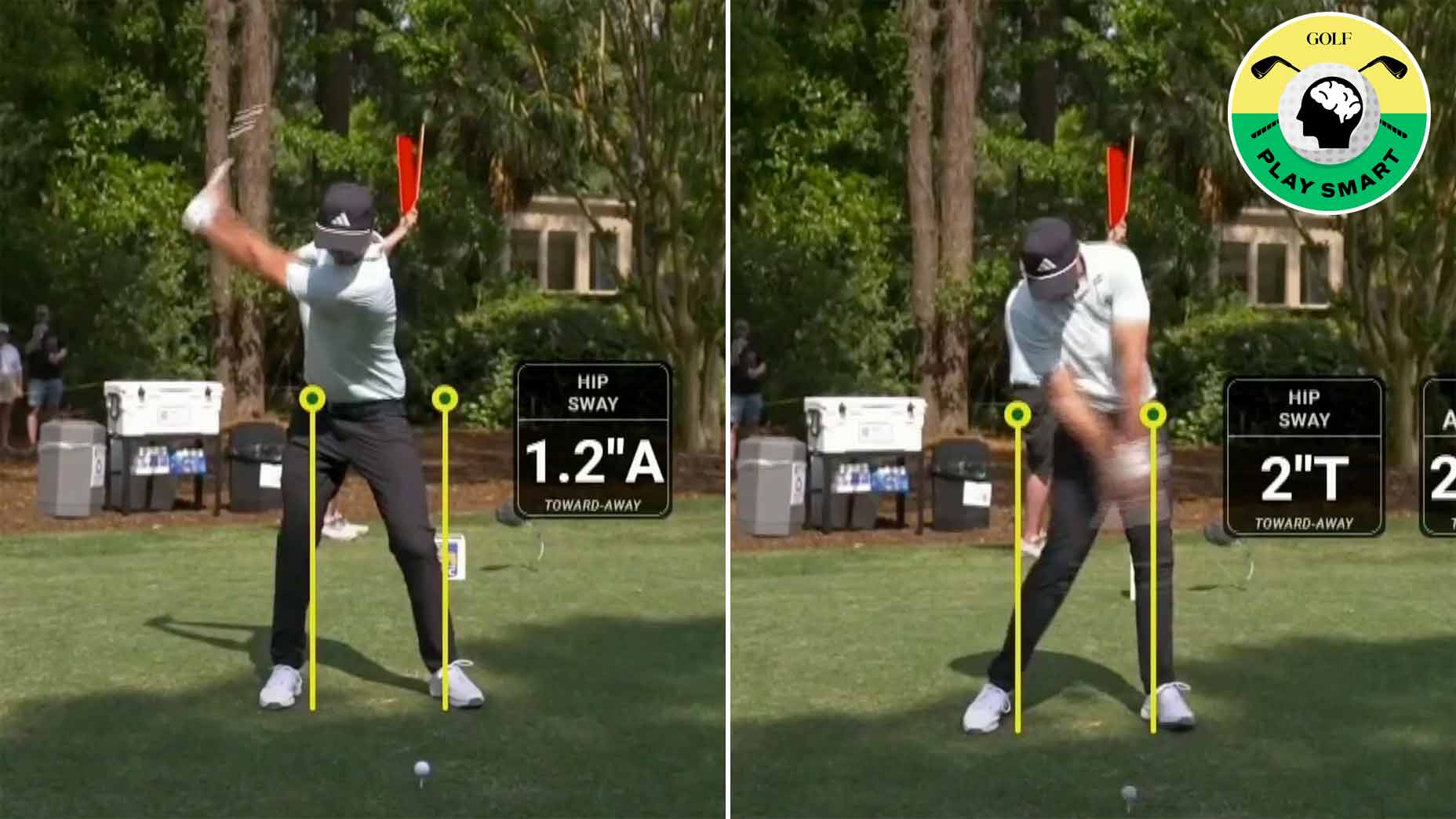What it means to ‘cover’ the golf ball (and why you need to be doing it)
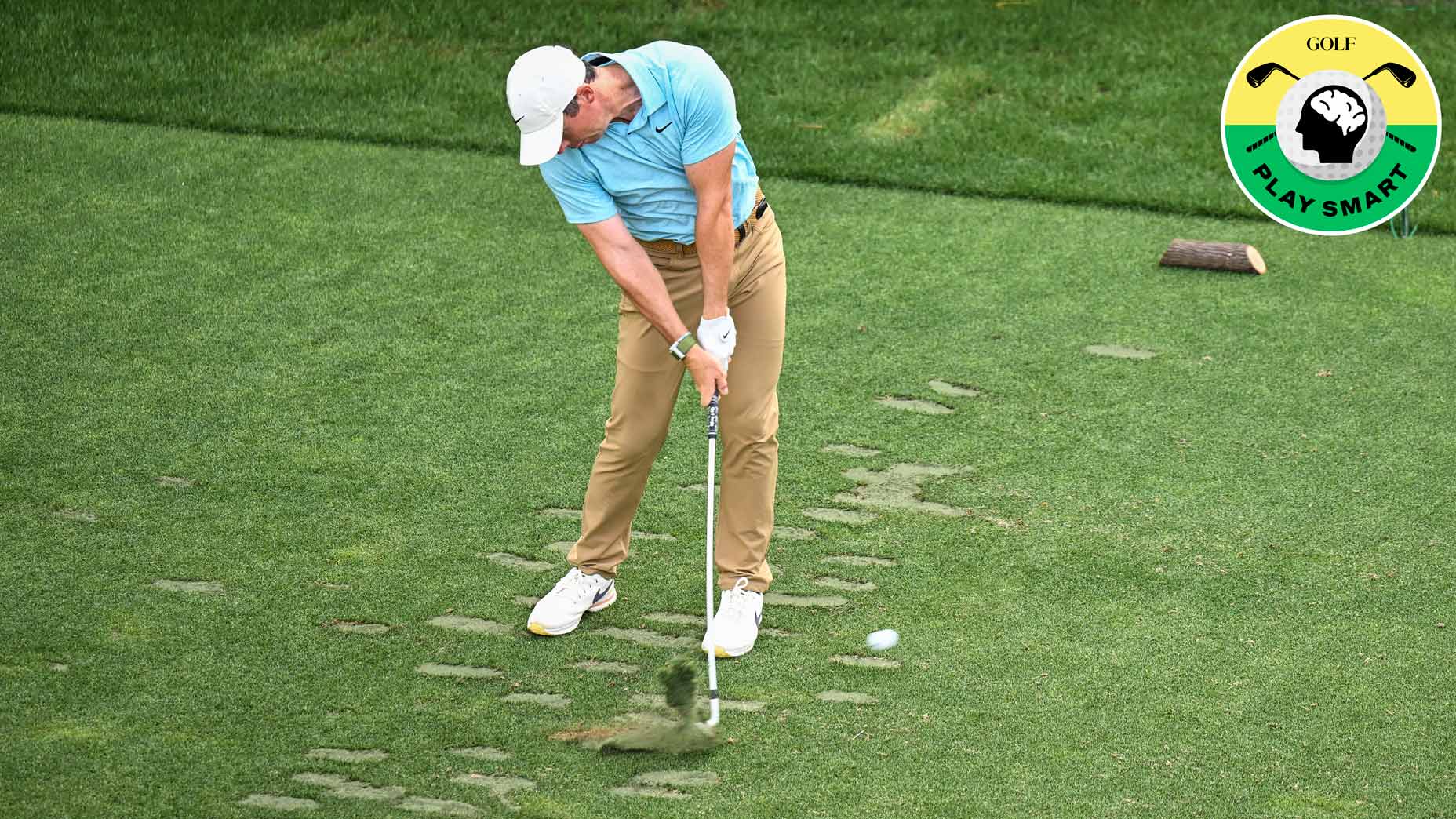
All the best players in the world cover the ball during their swing.
Getty Images
Welcome to Play Smart, a regular GOLF.com game-improvement column that will help you play smarter, better golf.
There’s no better feeling than flushing an iron. The ball comes out clean, and it has that sound. It’s an unmistakable feeling, and one that’ll have you yearning for more.
Pros generate this kind of contact quite frequently, but for those of us in the recreational ranks, those sorts of shots are few and far between.
If you want those flushed shots to become the norm, the first step is understanding why the ball comes out so clean. And for a vast majority of pure iron shots, it all starts with covering the ball.
What does it mean to “cover” the ball?
In all likelihood, you’ve heard the term “cover” when it comes to the golf swing. It’s a term that’s thrown around quite a bit in golf instruction, and it’s a key move if you want to hit the ball flush.
In basic terms, covering the ball means getting your weight in the proper position at impact. With an iron, you generally want a negative angle of attack, and an easy way to do that is by getting your weight (and low point of the swing) forward.
The swing experts over at Athletic Motion Golf (founded by GOLF Top 100 Teacher Shaun Webb) illustrate in the video below.
“We’re getting this center of mass over that center of mass basically on top or just slightly in front of the golf ball,” Mike Granato says. “The best players in the world, they get everything in front of the golf ball, so by impact, it falls right on top of the golf ball.”
The key to covering the ball is getting your weight in just the right position at impact. You don’t want to stay too far back and get the low point too far behind the ball, but you also don’t want to lunge forward and get too far out in front. To properly cover the ball, you need to get your center of mass right over the ball at impact.
If you can find the correct weight distribution at impact, you’ll be able to cover the ball and produce those pure, piercing iron shots every time.



